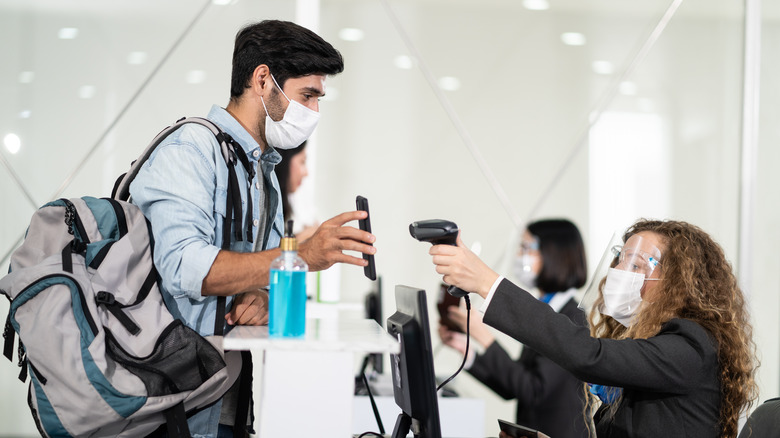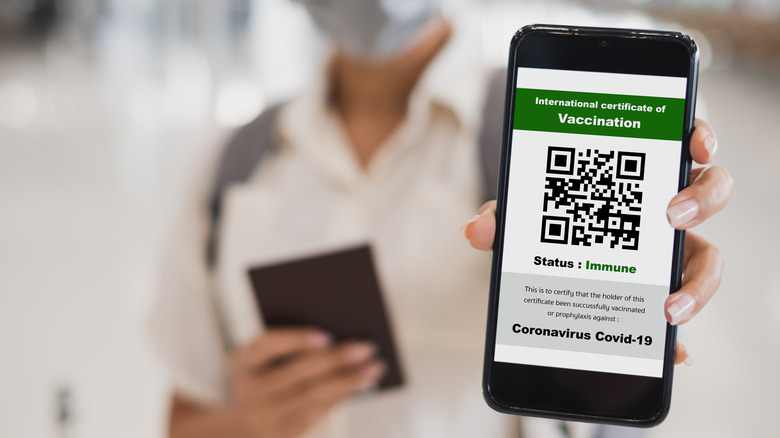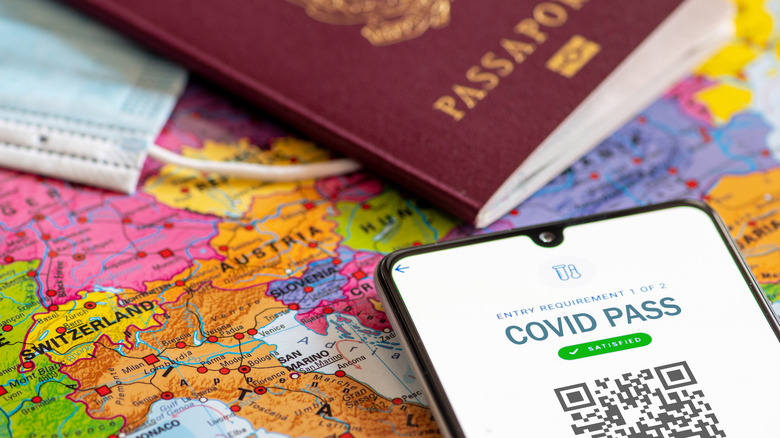Travel Guides International Vaccinations
Marie McMullan
The travel industry came to a halt at the beginning of the COVID-19 pandemic. Almost three years later, international air travel is still recovering, according to data from Airlines of America. With ever-changing regulations across the world, many travelers have lingering questions about what is required of them before international travel. While COVID-19 vaccines are not mandatory for all citizens of the United States, certain countries have stricter rules concerning the disease. And even if a country does not have COVID regulations regarding travel, the fine print on your travel documentation for a cruise or airline may include important rules for passengers to follow leading up to their trip.
Whether or not your party includes germaphobes, there are plenty of simple precautions you can take to avoid travel issues. Here’s a major hack: having proof of COVID vaccination accessible on your trip. But is the COVID vaccine necessary for Americans to travel internationally?
Though ‘strongly recommended,’ Americans aren’t required to have a COVID vaccine for international travel

Hananeko_Studio/Shutterstock
The language concerning COVID requirements for Americans hoping to travel abroad can get confusing. Technically, American citizens planning international travel do not have to get a COVID vaccine in order to come back to the United States. However, the CDC still has a “strong recommendation” for travelers to get their COVID vaccines before jet-setting. The Centers for Disease Control and Prevention (CDC) continues to urge travelers “to stay up to date with their COVID-19 vaccines,” along with “avoiding crowds … hand-washing, and wearing a high-quality mask or respirator.” For adults and children over the age of 5, updated bivalent boosters for the COVID vaccine are available to stay “up to date,” per CDC information.
Though not required, having your COVID vaccine is the simplest way to avoid travel mishaps when going abroad. According to GoAbroad, many countries accept negative COVID tests in order to enter their borders. However, you never know if you have been exposed and are asymptomatic. Having proof of vaccination on hand can ensure that you don’t get delayed entering or leaving a country. For Americans, the CDC has a helpful Travel Assessment tool that will gauge what you will need to prepare before your trip.
But non-Americans must show proof of vaccination to enter the U.S.

Nattakorn_Maneerat/Shutterstock
For non-American citizens, the rules are much stricter about COVID vaccinations upon entering America. If you aren’t a citizen or an immigrant to the U.S., “you will need to show proof of being fully vaccinated against COVID-19 before you travel by air to the United States from a foreign country,” according to the CDC. So if you are not an American citizen, yes, you will need proof of vaccination to fly into the U.S. from another country.
The CDC has also outlined what proof of vaccination is acceptable for non-American citizens and non-immigrants entering the country. Proof of vaccination must include full name and some other personal identifier (such as date of birth) that matches the traveler’s passport, name of the issuer, the vaccine manufacturer, and the dates of vaccination. Those who aren’t citizens must be sure to have proof of vaccination easily accessible if they’re planning on traveling by air to the U.S.
Tips for preparing for international travel with COVID lingering across the world

Michele Ursi/Shutterstock
While travelers are certainly in a better spot now than at the beginning of the COVID-19 pandemic, you can take precautions to maintain your health and safety when traveling. As the CDC recommends, getting vaccinated and staying updated with boosters is the best way to prevent serious illness if you end up contracting COVID on your trip. But in order to enjoy the benefits of the vaccine’s protection, you’ll need to do some planning ahead. “To maximize the protection you get from the vaccine, you should be two weeks beyond your second dose before you expose yourself in travel or other somewhat higher-risk circumstances,” Sten Vermund, Dean of the Yale School of Public Health, told The Washington Post. If you are planning to get updated boosters before international travel, just be sure to schedule your shot far enough in advance so that you’re the most protected from the virus.

